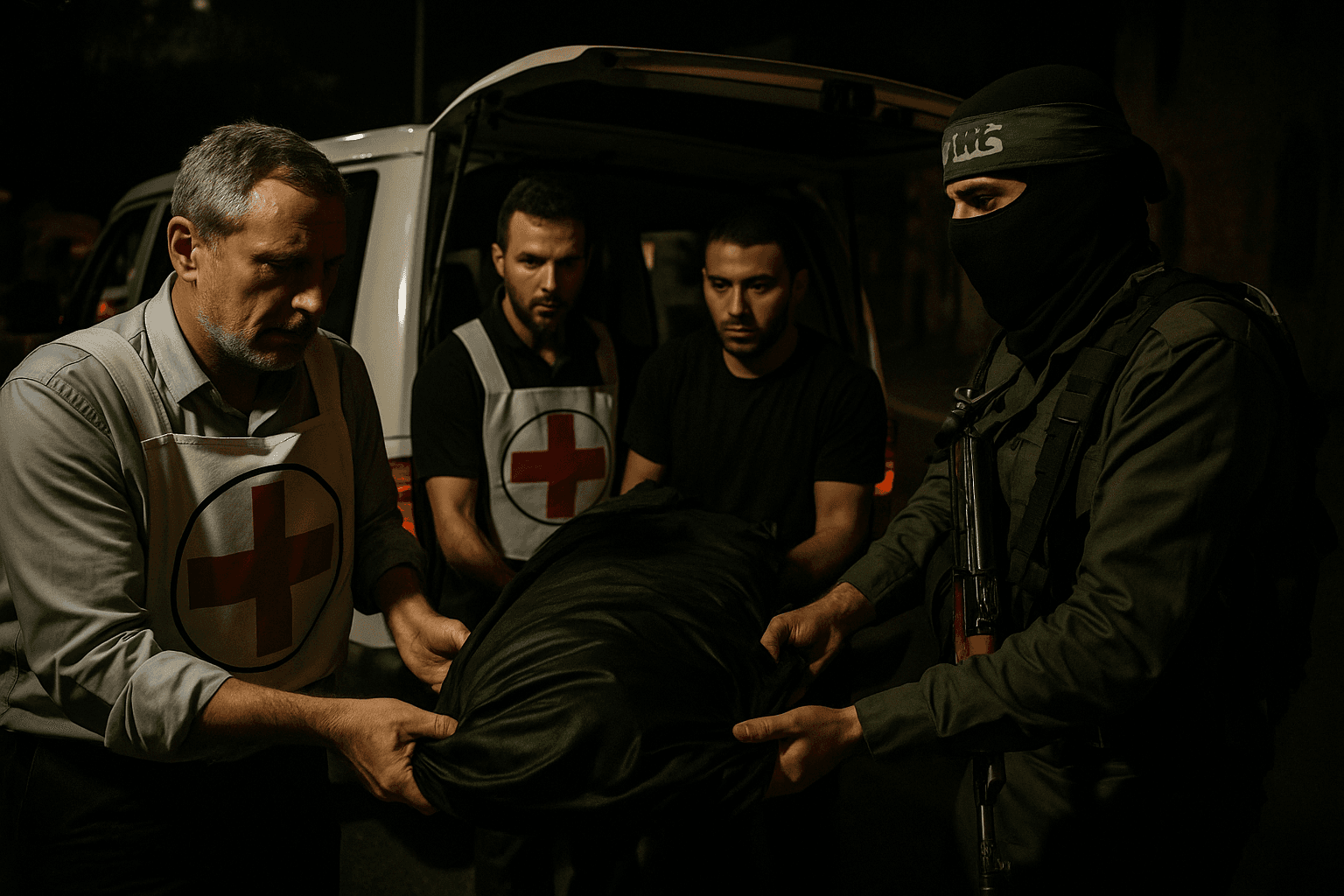Hamas to Transfer Israeli Hostage Remains to Red Cross Under Ceasefire
Hamas announced it would hand over the body of an Israeli hostage to the International Committee of the Red Cross as part of ceasefire arrangements that began in October, a development the Associated Press reported on November 25. The move highlights continuing humanitarian efforts even as accusations of violations and logistical strains threaten the fragile truce.
Hamas said it would hand over the body of an Israeli hostage to the International Committee of the Red Cross, the Associated Press reported on November 25, citing comments that placed the transfer within the framework of the ceasefire that began in October. Palestinian Islamic Jihad said it had found the remains in the Nuseirat area of central Gaza, and that the handover would occur on Tuesday. The announcement came amid a pattern of exchanges of bodies and remains that have been a central, if painful, element of the ceasefire arrangements.
The truce, now weeks old, has included negotiated movements of civilian aid, fuel and medical supplies into Gaza, alongside sporadic exchanges of detainees and remains. Those operations have been constrained by logistical bottlenecks, security concerns and damage to infrastructure in Gaza, creating acute humanitarian strains in a densely populated territory already facing shortages of water, power and medical capacity. International agencies have repeatedly warned that interrupted supplies and limited access are worsening conditions for civilians.
The International Committee of the Red Cross plays a central role in these transfers, providing a neutral intermediary to receive remains and coordinate repatriation. Such handovers are politically sensitive and operationally complex, involving verification, forensic processes and coordination across front lines. For both Israeli authorities and Palestinian groups, transfers of remains carry symbolic weight and can influence the tone of wider negotiations.
Despite periodic successes in exchanging remains and limited detainee transfers, both sides have publicly accused the other of violations that threaten the truce. The accusation dynamic complicates mediation efforts by regional and international actors who have sought to stabilize the ceasefire and expand humanitarian corridors. If violations continue, the operational gains achieved since October could unravel, risking renewed escalation and further restrictions on aid flows.

Beyond the immediate humanitarian consequences, the transfer and the surrounding secrecy underscore broader policy challenges. Donor governments and relief agencies must calibrate assistance under risky conditions, balancing urgency against access and safety. Regional governments and international mediators face a narrow window to translate ad hoc arrangements into durable mechanisms for civilian protection, reconstruction planning and the management of detainee issues.
The handover also matters for public sentiment on both sides, where human losses remain a focal point of political pressure. Successful transfers can provide temporary relief for bereaved families and create space for incremental trust building. Conversely, failures or perceived manipulations of the process can harden positions and impede broader diplomatic progress.
As the Red Cross prepared to receive the remains, the international community remained attentive to whether the transfer would proceed without incident and whether it could be followed by further cooperative steps. The next phase of negotiations will test whether the fragile ceasefire can sustain routine humanitarian operations and evolve into a more stable cessation of hostilities, or whether recurring accusations and logistical breakdowns will precipitate a return to open conflict.

